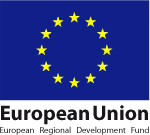Videogames Used in Sleep Apnea Study
A team of researchers has been using videogames to further study the effects of sleep apnea on a patient’s ability to form new spatial memories. Specifically it has been found that the condition can affect a person’s ability to remember recently created memories, such as where they have parked their car.
The study used a specific vidoegame to demonstrate that disruption of rapid eye movement (REM) sleep can cause issues in regards to spatial awareness, even when the other stages of sleep are perfectly in tact.
The study has been published in the Journal of Neuroscience and builds upon previous studies with rodents that also showed that depriving the brain of REM sleep can lead to detrimental effects on the memory. Despite this, it is the first study to truly demonstrate the effects of sleep apnea on a human’s spatial memory and goes some way to further demonstrating the importance of REM sleep.
The research team, which was led by Dr Andrew Varga, examined 18 subjects who had already been diagnosed with sever sleep apnea and receive treatment with a continuous positive airway pressure (CPAP) machine. The subjects were then tasked with playing videogames before and after sleep as part of the study.
Specifically the participants were asked to participate in a baseline test in which they navigated a pair of simulated mazes, thus establishing a memory of said mazes. Over the next two nights they were asked to repeat the task, with the first night seeing them use their CPAP machine to reduce the risk of sleep apnea, whereas on the second night the machine’s use as reduced in an effort to induce apnea.
The researcher’s found that there was a 30% improvement in the time taken to complete the mazes on the nights where CPAP therapy was used. However, on the nights where sleep apnea was induced, patients actually take 4% longer to reach the end of the mazes. The test was further clarified through testing the reactions of the patients at each stage, to ensure that tiredness was not the main proponent in the altering results.
“We’ve shown for the first time that sleep apnea, an increasingly common medical condition, might negatively impact formation of certain memories, even when the apnea is limited to REM sleep,” commented Varga. “Our findings suggest memory loss might be an additional symptom for clinicians to screen for in their patients with sleep apnea.”
The work adds to the research that has already been undertaken to establish the negative effects that sleep apnea can have on a sufferer’s circulatory system and may be used as the basis for the development of new treatments that will ensure that sufferer’s do not experience similar loses in spatial memory.






This Post Has 0 Comments